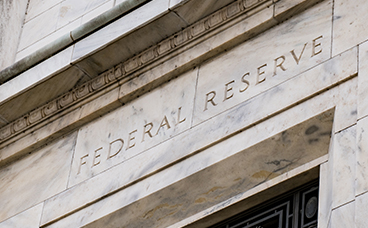Your personal investing strategy
At Morgans, we take a personalised approach to help you achieve your investment goals. We understand that investing is not a one-size-fits-all endeavour, and we are here to tailor our services and products to your specific needs and preferences.
.webp)
Our investment philosophy
Getting started is an important step, and we want to ensure that we have a deep understanding of where you stand when it comes to investing. We consider four foundational aspects.
Income Investing

Income investing
Income investing is a strategy focused on generating a reliable and steady stream of passive income. Investors pursuing this style often choose assets such as dividend-paying stocks, real estate investment trusts (REITs), and high-yield bonds. The primary goal is to accumulate regular cash flow from these investments, providing a consistent source of income. This approach appeals to those seeking financial stability and regular returns, making it a popular choice for retirees or anyone looking to supplement their income through strategic investment choices.

Capital growth
Capital growth investing is a strategy centered on increasing the value of an investment portfolio over time. Investors pursuing this style typically allocate funds to assets with the potential for substantial appreciation in value, such as growth stocks or emerging market opportunities. The focus is on long-term capital appreciation, with the goal of building wealth and achieving significant returns.
While capital growth investing involves a higher level of risk, it appeals to those with a longer investment horizon and a willingness to withstand market fluctuations in pursuit of higher overall portfolio value over time.

Capital security
Capital security investing prioritises the preservation of invested capital and minimising the risk of loss. Investors adopting this strategy tend to allocate funds to low-risk assets such as government bonds, high-quality corporate bonds, or other stable securities. The primary objective is to safeguard the initial investment, even if it means accepting lower returns compared to riskier investments.
Capital security is particularly attractive to conservative investors or those nearing retirement who prioritise protecting their wealth and are more risk-averse. This approach provides a sense of financial stability and security, albeit with potentially lower returns compared to higher-risk investment strategies.

Risk / return
Risk/return investing involves a balanced approach to investment strategy, carefully weighing potential risks against anticipated returns. Investors pursuing this style seek to enhance their portfolio performance by selecting a mix of assets that align with their risk tolerance and financial goals. This strategy acknowledges that higher potential returns often come with increased risk and vice versa.
Balancing the risk-return profile allows investors to tailor their portfolios to match their individual preferences, whether they are comfortable with more volatility in pursuit of higher returns or prefer a more conservative approach with lower risk and stable, albeit potentially more modest, returns. This versatile strategy enables investors to align their portfolios with their specific risk preferences and financial objectives.

News & insights
Stockbroking FAQs


Our professional advisers craft a bespoke investment strategy tailored to your financial objectives and risk profile. Reach out via our website or visit a local branch to find out more about our award-winning research, exclusive ASX opportunities. Contact us to find out more.


Morgans empowers investors with tailored stockbroking guidance and education. Our advisers provide personalised portfolios, access to top-tier research, and clear explanations of stock market fundamentals, risk levels, and investment strategies.


Easily find a Morgans financial adviser using our online branch locator tool. With 56 offices across every Australian state and territory, our advisers deliver customised investment advice tailored to your needs. Enter your postcode or suburb to connect with a local professional. Find an adviser near you.


For over 40 years, Morgans has built trust through customise financial solutions. Our clients gain access to ASX investment opportunities and benefit from award-winning research.


Our financial advisers take a client-centric approach, deeply understanding your investment goals, risk tolerance, and life stage. Using our extensive ASX research and national network, we create tailored investment strategies to foster long-term financial success and enduring partnerships.


Morgans’ research team provides in-depth analysis of key ASX sectors, including banking, industrials, resources, energy, technology, consumer discretionary, telecommunications, travel, and property. Our insights cover over 200 ASX-listed companies, highlighting growth opportunities and market trends. See our full list of our companies under coverage.


Morgans’ Chief Economist, Michael Knox, delivers insights on critical factors like interest rates, tax policies, and global economic trends impacting the ASX. Recognised by the AFR as a top-ten forecaster in 2023 (6th Best Economic Forecaster, 7th Best Cash Rate Forecaster), his reports keep clients up to date on economic activity. View our latest articles here.










